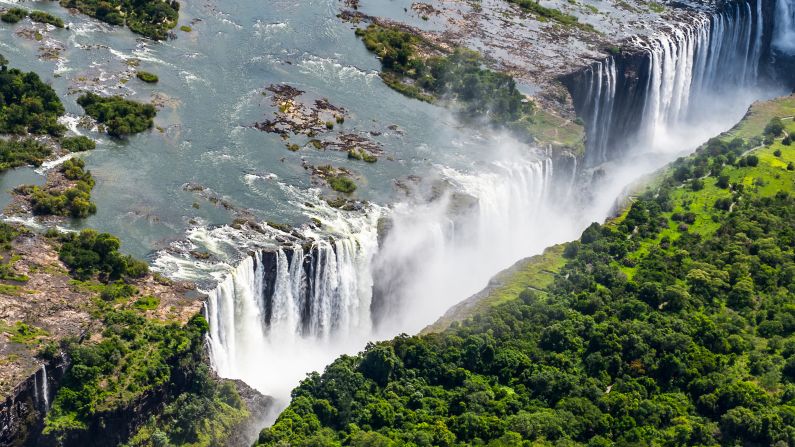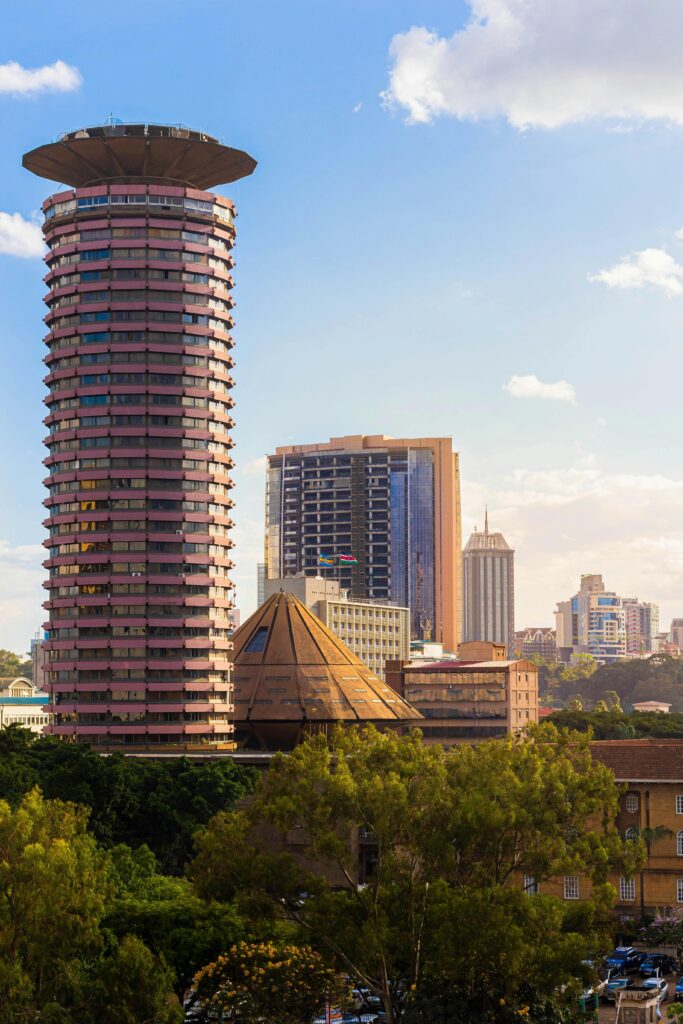5 Most Developed Countries in Africa and What Sets Them Apart.
“From the African perspective, development is a matter of realizing our potential and making the progress that we know is humanly possible because others have gotten there –” Tony Elumelu, Founder Tony Elumelu Foundation.
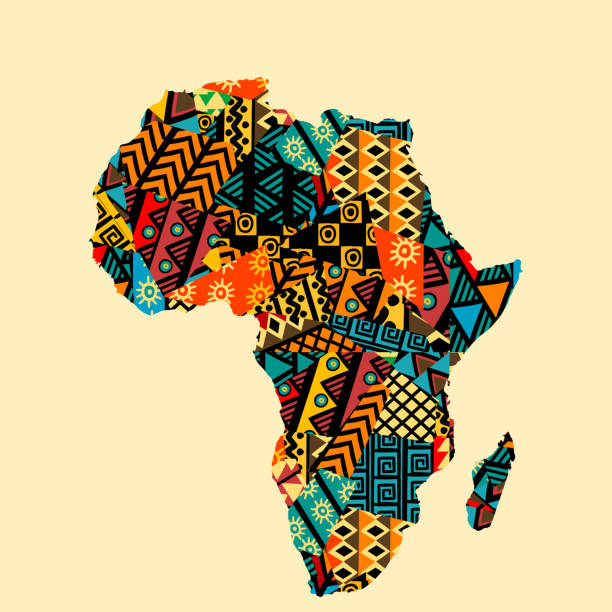
When you hear the name “Africa,” what comes to your mind? To many, the narratives has been nothing but negative and derogatory. However, there are numerous good things to be known about this continent especially in terms of rising development.
The story of Africa’s growth and development is one of transformation. Over recent decades, many African countries have emerged as leaders on the continent, showcasing rapid development in sectors like infrastructure, education, healthcare, and technology. In this article, we’ll explore the five most developed countries in Africa, examining what sets them apart and how they are reshaping the narrative of Africa’s growth and potential. These countries are:
#1. Seychelles
Do you know there’s an Island in the continent of Africa? The island nation of Seychelles tops many lists for human development in Africa. The country is known for its stunning natural beauty and high standard of living. This factors are what makes it have one of the highest Human Development Index (HDI) rankings on the continent.
With substantial investments in healthcare, education, and environmental conservation, this country has established itself as a model of sustainable development. The tourism sector, which emphasizes eco-friendly initiatives, combined with a stable economy and low poverty rates, distinguishes Seychelles from its peers.
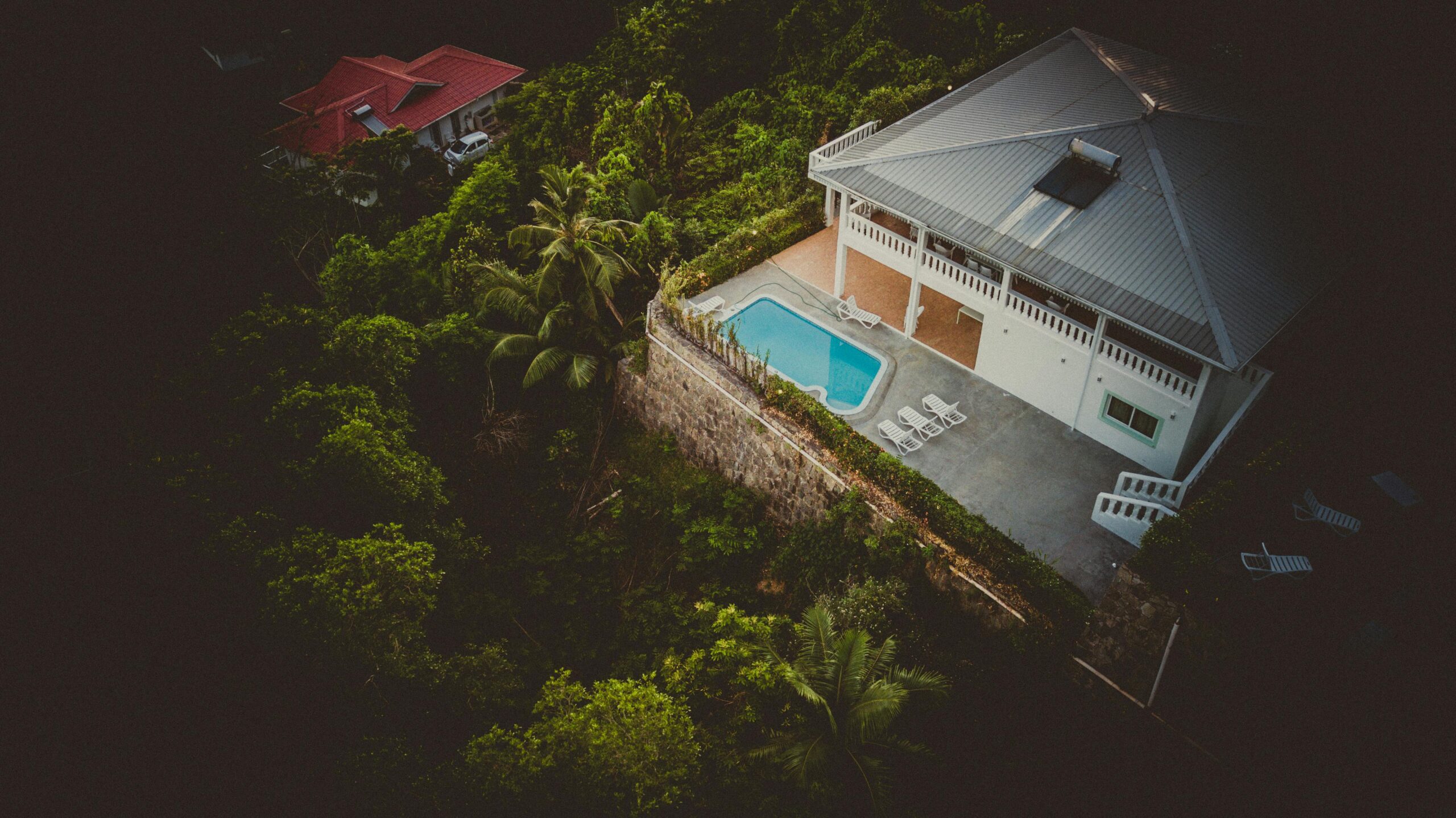
What Sets Seychelles Apart
Seychelles stands out as a unique destination in Africa and globally. The country is widely celebrated for its stunning natural beauty, commitment to sustainability, and luxury tourism offerings. Some of the things that sets Seychelles apart are:
- Pristine Natural Beauty: Seychelles is an archipelago of 115 islands in the Indian Ocean. It is known for its white-sand beaches, crystal-clear turquoise waters, and lush green landscapes. The islands are home to unique granite rock formations, coral reefs, and diverse marine life, making them a paradise for snorkelers and divers. Sites like Anse Source d’Argent on La Digue Island are globally renowned for their beutiful picturesque landscapes.
- Commitment to Conservation: Seychelles has made impressive strides in environmental conservation. Nearly half of its land area is protected, with numerous nature reserves and marine parks. The island nation has implemented sustainable tourism practices, safeguarding its ecosystems and biodiversity. The Aldabra Atoll, a UNESCO World Heritage Site, houses the world’s largest population of giant tortoises and is a pristine example of untouched natural habitat.
- Luxury Tourism and Privacy: Seychelles offers some of the world’s most exclusive luxury resorts, ideal for travelers seeking privacy and personalized experiences. Resorts such as North Island Lodge and Six Senses Zil Pasyon are situated on private islands, catering to high-profile guests looking for an escape from the bustling world. This makes Seychelles a top choice for honeymooners, celebrities, and anyone looking for a private, luxury getaway.
- Diverse Culture and Heritage: The culture in Seychelles is a mix of African, European, and Asian influences, creating a unique Creole identity. This blend is evident in the islands’ music, dance, language, and cuisine, which combines flavors from around the world. Events like the annual Creole Festival celebrate this cultural heritage, drawing visitors eager to experience the vibrant local traditions.
- Rich Marine Life and Ecotourism: Seychelles is a leading destination for ecotourism, with activities like reef conservation diving and eco-tours that allow visitors to enjoy and help preserve the environment. The islands of Seychelles boasts of incredible underwater biodiversity, making them a paradise for divers and marine enthusiasts. Coral reefs, whale sharks, manta rays, and various species of fish populate the surrounding waters, offering unmatched underwater experiences.
- Focus on Sustainable Development: Seychelles is actively involved in global environmental conservation efforts due to its vulnerability to climate change. The country has made ambitious moves in renewable energy and sustainable resource management. In fact, it pioneered the world’s first “blue bond” initiative, designed to protect marine ecosystems while promoting sustainable fishing and tourism.
#2. Mauritius
Mauritius has become a powerhouse in economic and social development. Known for its diversified economy, Mauritius ranks high in income levels, infrastructure, and business-friendly policies. Its development strategy includes an emphasis on the tourism, finance, and information technology sectors, making it an attractive destination for foreign investment. The country’s strong legal system and focus on education have also contributed to a highly skilled workforce, which fuels its competitiveness on the global stage.
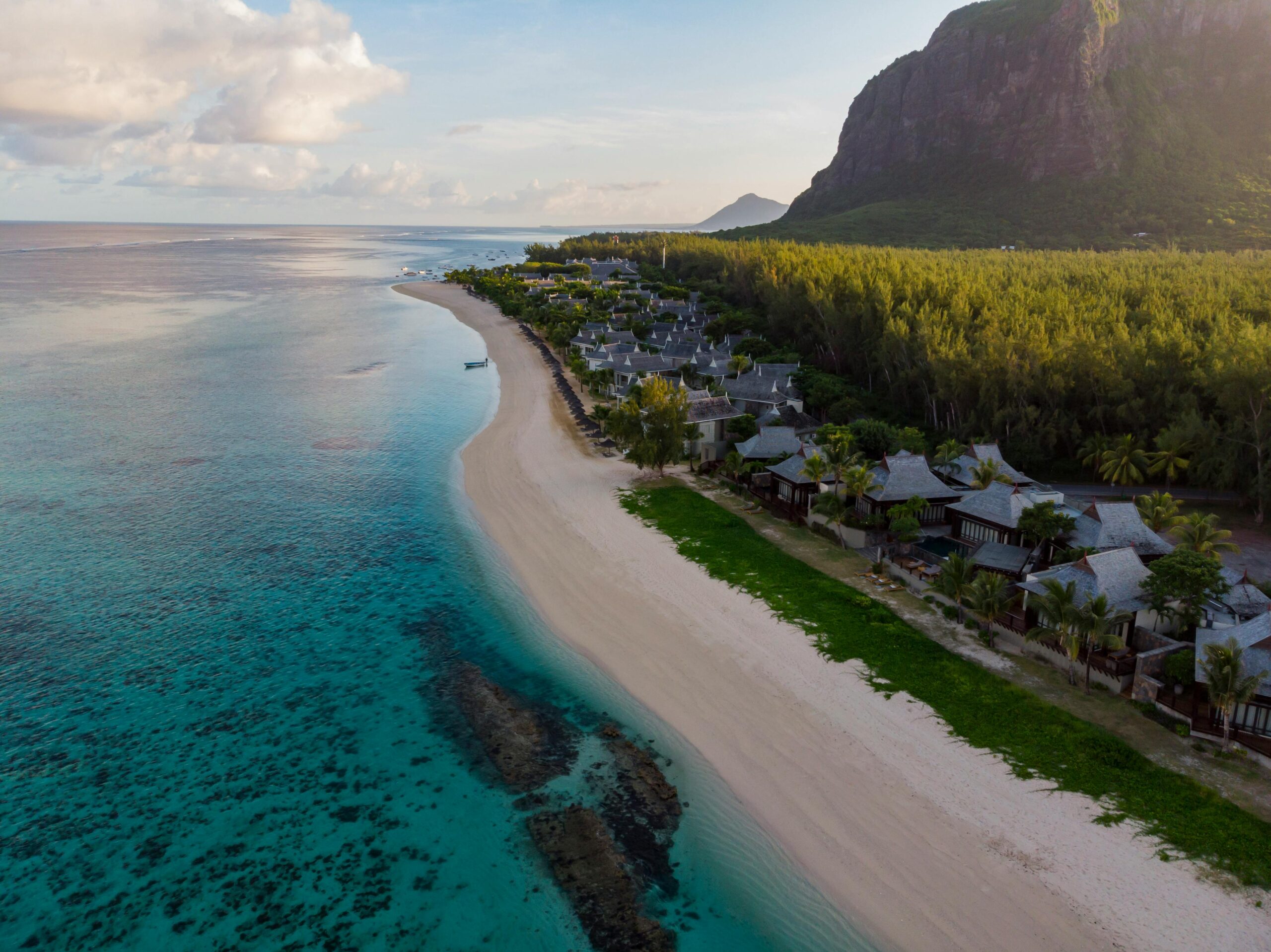
What Sets Mauritius Apart
Mauritius is also a small island nation in the Indian Ocean. The country has gained a reputation for its exceptional beauty, cultural diversity, and robust economy. Some of the features truly sets Mauritius apart as a unique destination in Africa and beyond are:
- Stunning Natural Landscapes and Beaches: The country is celebrated for its turquoise waters, white-sand beaches, and lush tropical landscapes. With iconic sites like the Seven Colored Earths of Chamarel, the Black River Gorges National Park, and the vibrant coral reefs that surround the island, Mauritius offers stunning natural diversity. These landscapes attract travelers from around the world, creating a paradise for beachgoers, divers, and adventure seekers alike.
- Multicultural Heritage and Harmony: This country reflects a blend of African, Indian, Chinese, and European influences. This diversity is reflected in its cuisine, festivals, languages, and architecture. The country is also known for its peaceful coexistence among various ethnic groups, setting an example of cultural harmony. Visitors can experience this multiculturalism in the vibrant food markets, festivals like Diwali and Chinese New Year, and the island’s unique Creole culture.
- Thriving Economy and Investment Opportunities: Unlike many island nations, Mauritius boasts a thriving economy supported by tourism, finance, textiles, and a growing IT sector. The country has developed a strong business environment with low taxes, making it attractive for foreign investment. Mauritius is also often seen as a financial hub for Africa, with a stable political landscape and investor-friendly policies that drive its reputation as a safe and profitable place for business and investment.
- World-Class Hospitality and Luxury Tourism: Mauritius is known for its luxury tourism industry, offering some of the world’s best resorts, spas, and golf courses. Mauritius provide visitors with top-tier service, private beaches, and exclusive amenities. The island is a popular choice for honeymooners and luxury travelers, and its high standards of hospitality and service contribute to its status as a leading travel destination.
- Environmental Conservation and Ecotourism: Mauritius is actively committed to environmental conservation, especially as a small island nation vulnerable to climate change. The government and various organizations have launched projects aimed at preserving the island’s unique ecosystems, including marine conservation and endangered species protection. Initiatives like the rehabilitation of the island’s native flora and fauna, and the preservation of marine life, make Mauritius a key player in ecotourism and sustainable travel.
- Rich Cultural Attractions and Historical Sites: Beyond its beaches, Mauritius is rich in history and cultural attractions. Visitors can explore the Aapravasi Ghat, a UNESCO World Heritage Site marking the arrival of indentured laborers from India, and Le Morne Brabant, a historical symbol of resistance against slavery. The island’s historical sites provide a fascinating look into its past and contribute to the depth of experiences available for travelers interested in history and culture.
#3. South Africa
South Africa stands as one of Africa’s most industrialized countries. The country boasts world-class roads, ports, and rail networks making it known for its advanced infrastructure. The country’s mining sector which is also one of the largest in the world, drives significant economic output, while tourism and financial services contribute to the diverse economy of the country. South Africa’s investments in education and technology make it a leader in innovation on the continent.
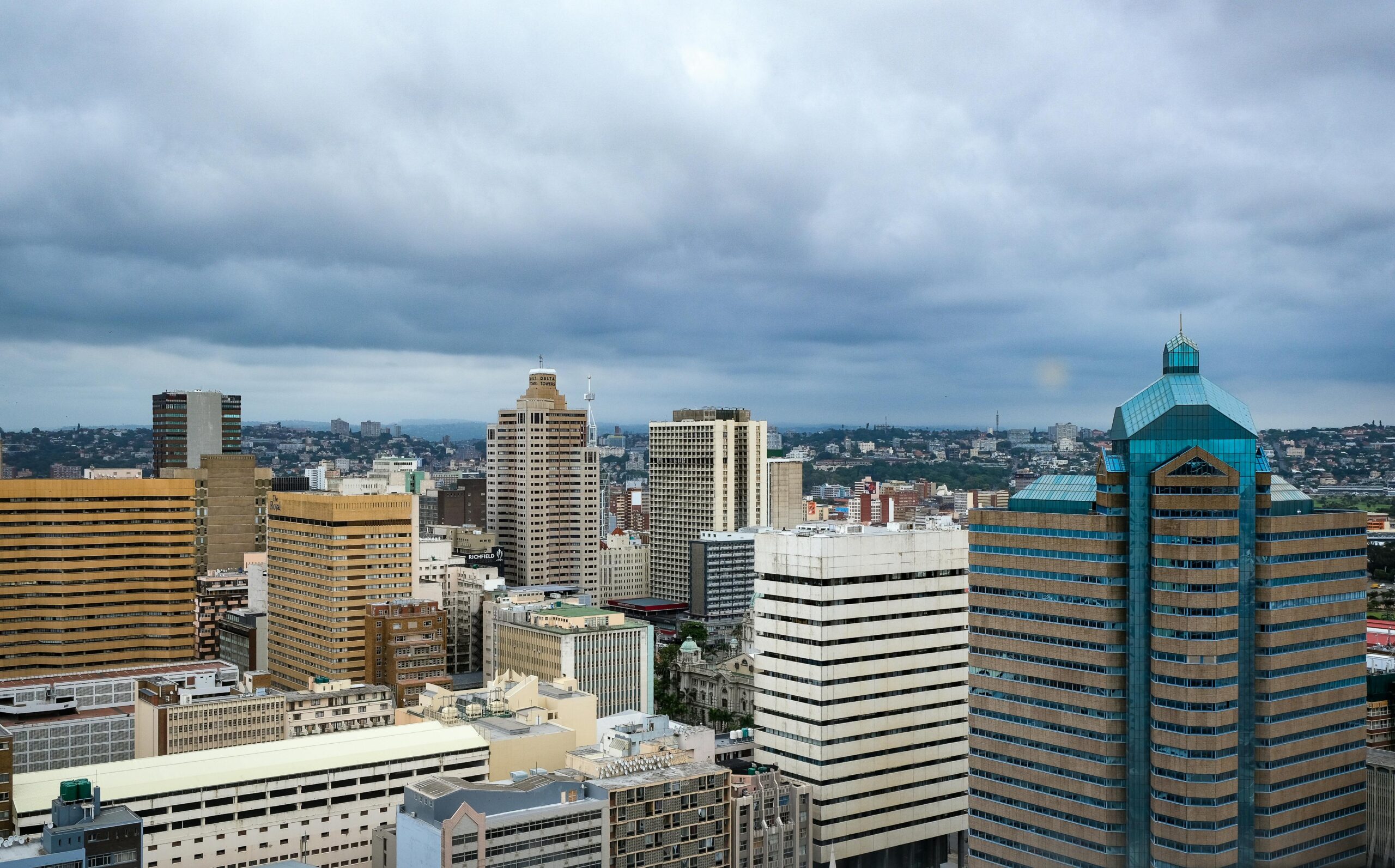
What Sets South Africa Apart
Some of the things which sets South Africa apart are:
- Spectacular Natural Diversity: South Africa is home to an incredibly varied landscape which features everything from deserts and mountains to coastlines and savannas. It is one of only 17 “megadiverse” countries in the world that boasts of around 20,000 different plant species, many of which are found nowhere else. South Africa’s natural wonders, like Table Mountain, Kruger National Park, and the Garden Route, attract millions of tourists annually for wildlife safaris, hiking, and beach vacations.
- Unique Wildlife and Conservation Efforts: The country is known as a top safari destination and is famous for its Big Five – lions, elephants, rhinos, leopards, and buffalos. The country has a robust network of national parks and private reserves that not only protect these species but also offer eco-tourism experiences. This focus on wildlife preservation makes South Africa a model for sustainable tourism in Africa.
- Cultural Richness and Diversity: South Africa is home to a unique mix of cultures, languages, and traditions all of which makes the country to be called the “Rainbow Nation.” With 11 official languages, including Zulu, Xhosa, and Afrikaans, and a blend of indigenous and European influences, the country has a rich, multifaceted identity. This diversity is celebrated through vibrant festivals, music, and arts, which offer visitors a deep dive into the country’s varied heritage. South Africa’s townships, music (such as jazz and Kwaito), and landmarks like Robben Island, where Nelson Mandela was imprisoned, offer an immersive cultural experience.
- Economic Strength and Infrastructure: South Africa boasts one of Africa’s most developed and diversified economies as the country’s economy is powered by industries such as mining, finance, and tourism. The country is the world’s largest producer of platinum and has a significant gold mining industry. Cities like Johannesburg, Cape Town, and Durban serve as economic hubs, with advanced infrastructure, reliable financial institutions, and bustling trade centers that support growth and attract foreign investment.
- Rich History and Symbol of Freedom: The history of South Africa can be described as one of resilience and transformation. The country’s long struggle against apartheid, led by figures like Nelson Mandela and Desmond Tutu, stands as a global example of the fight for equality and freedom. Sites like the Apartheid Museum, Constitution Hill, and Vilakazi Street in Soweto (home to both Nelson Mandela and Desmond Tutu) also provides insight into the notable past histories of the country.
- Wine Industry and Culinary Innovation: Do you know that South Africa is one of the world’s top wine producers? With the country’s Winelands region near Cape Town, it is famous for producing high-quality wines like Chenin Blanc and Pinotage. South African cuisine is equally distinct, blending indigenous flavors with influences from Dutch, Indian, and Malay cultures. Traditional dishes like bobotie and braai (South African barbecue) highlight the country’s culinary diversity and innovation, drawing food enthusiasts from around the world.
- Influential Role in African and Global Affairs: As a founding member of the African Union and the United Nations, South Africa plays an influential role in continental and global politics. Its leadership within BRICS (Brazil, Russia, India, China, South Africa) places emphasis on the county’s its impact on global economic policies and development initiatives. Relative to other African nations, the country’s political stability positions it as a leader in fostering partnerships and shaping economic policies across Africa.
#4. Rwanda
Do you know that Rwanda is often referred to as the “Singapore of Africa“? This is due to the rapid development of the country. Following a tragic history, Rwanda has focused on technological innovation, anti-corruption measures, and green initiatives to build a resilient economy. Kigali is the capital of the country and it is one of Africa’s cleanest and most organized cities. Rwanda’s focus on entrepreneurship, technology, and women’s empowerment has fostered an environment where businesses thrive and this sets the country apart as a progressive leader in East Africa.

What Sets Rwanda Apart
Here are some of the interesting things that sets Rwanda apart:
- Remarkable Economic Transformation: Following the 1994 genocide, Rwanda has undergone a significant economic transformation. The country’s leadership focused on rebuilding infrastructure, reducing poverty, and encouraging foreign investment. Today, Rwanda is one of the fastest-growing economies in Africa and is known for its streamlined business environment. The World Bank ranks Rwanda as one of the easiest places to do business in Africa.
- Commitment to Cleanliness and Environmental Sustainability: Rwanda is renowned for its environmental initiatives. In 2018, the country implemented a ban on plastic bags, and is one of the first African countries to do so. The capital, Kigali, is celebrated as one of the cleanest cities in Africa, with strict rules for littering and monthly community clean-up days, known as Umuganda.
- Efforts Toward Gender Equality: Rwanda has made strides in gender equality, particularly in government representation. The country boasts one of the highest rates of female political participation in the world, with over 60% of parliamentary seats held by women. This progressive approach extends to other areas, such as education and business, where women are increasingly active and supported by government initiatives.
- Innovative Tech and Smart City Initiatives: Rwanda has set ambitious goals for becoming a regional tech hub and a model for “smart cities” in Africa. Kigali has invested in digital infrastructure, including nationwide 4G coverage, and created the Kigali Innovation City which is a tech hub intended to attract startups and tech investors. The government’s vision, known as “Vision 2050,” aims to transform Rwanda into a knowledge-based, middle-income country, with tech and innovation playing a major role.
#5. Kenya
Kenya is recognized as East Africa’s leading economy, with strengths in finance, technology, and tourism. Nairobi is the capital of the country and is known as “Silicon Savannah” due to its booming tech industry. The booming tech industry has produced innovations in mobile payments, fintech, and more. The country’s agricultural exports and a strategic location for trade and commerce help fuel its economy. Kenya’s advancements in education, healthcare, and infrastructure make it one of the continent’s most developed nations.
What Sets Kenya Apart
Some of the key factors that make Kenya truly unique include:
- Diverse Ecosystems and Wildlife: This country is renowned worldwide for its incredible biodiversity and conservation efforts. The country hosts a variety of ecosystems, including savannas, mountains, deserts, and coastal regions. National parks such as the Maasai Mara, Amboseli, and Tsavo provide sanctuary to Africa’s iconic “Big Five” animals—lions, leopards, elephants, buffaloes, and rhinos—making the country a premier destination for safari tourism.
- Influential Arts and Sports Scene: Kenya has made its mark on the global stage in athletics, especially in long-distance running. Kenyan athletes are known for their success in international competitions, consistently ranking at the top in marathons worldwide. In the arts, Kenya’s growing film, music, and fashion industries reflect its cultural vibrancy, with events like the annual Nairobi Film Festival showcasing local talent.
- Economic Influence and Regional Leadership: The country is one of the largest economies in East Africa and it plays a critical role in regional trade and development. Nairobi is home to numerous international organizations and serves as a hub for business and diplomatic relations. Kenya’s economy is diverse, with sectors including agriculture, tourism, manufacturing, and financial services. The nation’s economic growth and stable business environment make it attractive for foreign investment, particularly in infrastructure and energy projects.
Conclusion
The continent of Africa is constantly evolving and these five countries represent some of the continent’s most inspiring stories of progress, growth and development. As Africa continues to rise, these nations highlight the tremendous potential and resilience that characterize the continent’s development.

